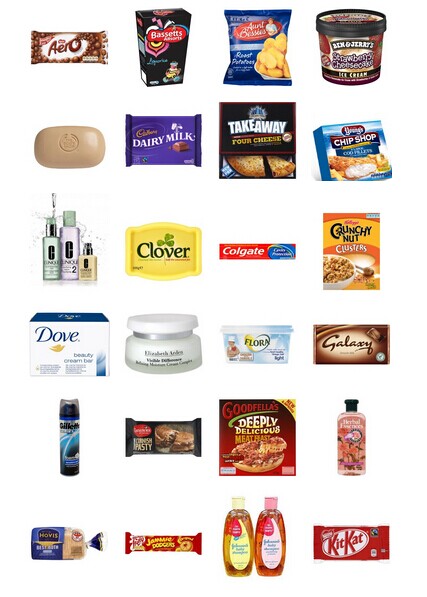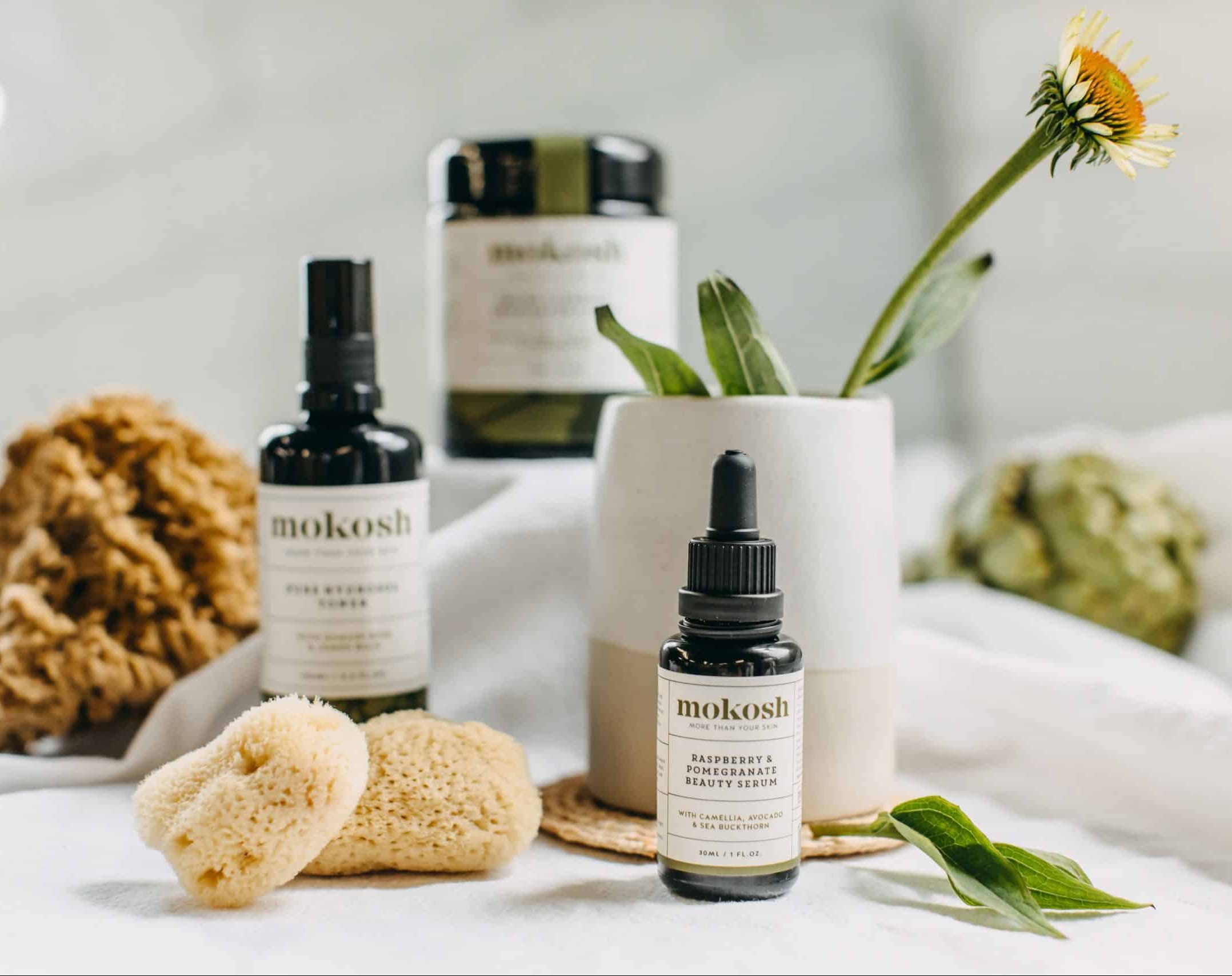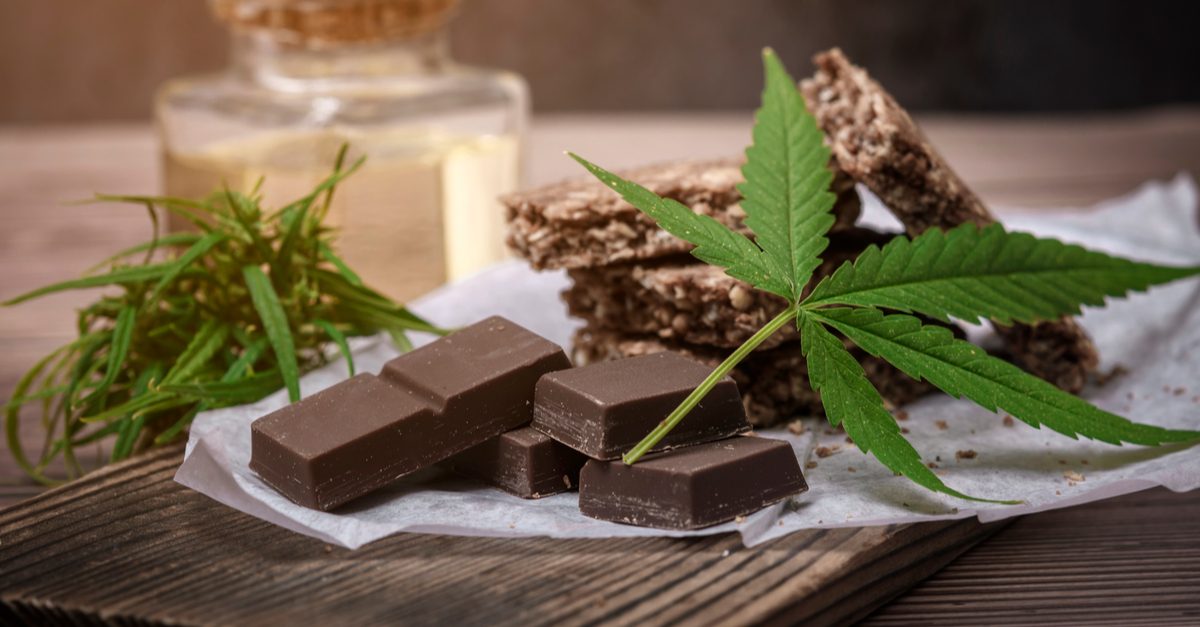Though body oils and body lotions have the same end goal—to moisturize your skin—they get the job done in different ways. "When you layer an occlusive oil on top of a lotion you get better penetration of the active ingredients in the lotion producing faster and more noticeable hydrating benefits," she says. If you're someone with oily skin, you don't have to miss out on the benefits of an oil.
"Many people feel that oily skin types cannot use oil-based skin-care products, which is not true," says Dr. Zeichner. Keeping your face hydrated with certain types of skincare products is a no-brainer if you deal with dry or flaky skin. However, even people with oily or acne-prone skin need their daily dose of moisture.
Instead of applying a thick or heavy cream, which may bog down oily skin types, the goal is to apply on an oil-free, non-comedogenic moisturizer that sits lightly on top of your skin. Additionally, skincare oils are generally "cleaner" than other moisturizing products. Most oils used as moisturizers are naturally shelf stable for three years or more, meaning synthetic preservatives aren't necessary. These characteristics make body oils a better fit for many with skin sensitivities, and actually leave less of a "greasy residue" than many lotions and creams. If you think that people with dry skin would benefit more from body oils, then you're absolutely wrong.
This is because most body lotions are mostly formulated with water, which helps your skin retain moisture and keeps it skin soft and supple. Additionally, the lightweight texture of a body lotion sinks right into your skin, thereby hydrating it to the deepest levels. Also, body lotions tend to contain both oil and water, along with a host of other skin-loving ingredients, making it an absolute saviour for dry skin. The main benefit of using a body oil in your winter skincare routine is obviously unmatched hydration. Body oils help to strengthen your skin's barrier function to seal in moisture and prevent your skin from getting dry too quickly.
Since oils mimic the natural lipids in the skin, it helps regulate sebum production, making it an ideal choice for people with oily and acne-prone skin. Additionally, body oils also lend an envious glow to your otherwise dry and dull winter skin. If you're on the hunt for an oil to add into your routine, Levin recommends squalene, marula, or jojoba oil, since they can help with redness and won't clog pores, given the molecule size. These natural oils will not only condition skin, but they're also packed with essential vitamins. Gohara mentions mineral oil-based products like Vaseline are also a great choice for most skin types. Oils to avoid in skincare are argan and coconut oil, since the molecule size is larger and therefore may contribute to acne .
By now, we all know how great oils and lotions are at keeping the skin smooth and hydrated, playing a vital role in any body care routine. But with all the options on the market in both categories, you may have a hard time deciding whether a body oil or body lotion is the better option. After all, both skin care products promise soft, hydrated skin, so what's the difference, right? Well, you can skip the Google search because we're here to share some helpful information.
Read on to find out if body oil is better than lotion, so you can decide which product to add to your daily skin care routine. People with oily and acne-prone skin respond better to body oils as it helps them balance the natural oil production. Moreover, it prevents acne as excess oil will not be produced by your body if you regularly nourish your skin by applying body oils. First of all, it's essential to know which skin types react best to each moisturizer. "Bodies that suffer from body acne, ingrown hairs, and hyperhidrosis do better with lightweight moisturizers such as lotions." And finally, body butters are the most occlusive, meaning they provide the strongest possible protective barrier to seal and lock in moisture, according to LaBree.
They're "best used on dry and delicate skin, or in a dry climate where moisture can escape from the skin," she advises. This means that you should definitely turn to body butter and this one skin-care move during winter, when environmental aggressors are most likely to leave your skin parched. Our high-end pick is Kiehl's Creme de Corps Soy Milk & Honey Whipped Body Butter; our budget pick is Burt's Bees Mango & Orange Body Butter.Dr.
Robinson adds that what makes butters so effective is that they contain not only moisturizers, but also oils or fatty acids derived from plant sources, such as shea butter, for deeper hydration. An oil-based moisturizer is best for those with dry skin that has a damaged barrier or lacks sebum. The oil-based ingredients will help to replenish the skin's barrier function.
Many oils also contain vitamins and fatty acids that impart anti-aging benefits. For instance, rosehip seed oil contains provitamin A, mostly as beta carotene. Beta carotene has the ability to increase cell turnover and promote regeneration in the outer layers of the skin. Over time, this can help even out skin tone and add a "glow" to the skin. So this oil-based moisturizer not only helps to replenish the skin's lipid barrier but also provides a youthful glow to skin.
While some believe a body oil works the best for the skin, others vouch for a body lotion. Although they come with unique formulas, their primary function is to keep the skin hydrated. However, the one-size-fits-all approach never goes well for skin care products.
That said, a body oil may work better sometimes and a body lotion at other times. Much of the results also depend on your skin type, concerns, and environmental conditions. This article explores the difference between a body oil and a body lotion, their benefits, and how they work. This is a very popular alternative that is very well-known, cheap and can be found at your local grocery store. Coconut oil contains antioxidants and vitamins that help your skin stay moisturized.
Many people worry about feeling sticky after applying it, but coconut oil absorbs rapidly into your skin and it leaves it feeling moisturized and smooth. It can also be used as a natural SPF sunscreen as it blocks 20% of ultraviolet radiation. "Body oils are the most emollient, meaning they soften and nourish the skin," says Skincare Educational Expert Sara LaBree.
Body oils are also versatile, according to LaBree, in that they can be used for body and massage treatments. Light skin oils that contain Apricot, Olive, Lime, Sandalwood, Rosehip, Lavender, Avocado, Argan, Patchouli and Orange extracts benefit all, including sensitive skin types. Oils are so good for your skin because they deliver antioxidants, vitamins and essential fatty acids to skin effectively. Remember a little goes a long way making them a cost-effective way of getting supple, smooth skin.
Applying oil to wet skin increase absorption, so apply right after your shower when your skin is still damp. Now you know the key difference between the formulas of body butter, body oils and body lotions. All three consistencies have a different feel on your skin and a difference of ingredients in terms of water to oil radio. Confidently choose the right pick for your skin type, concerns and needs. You can choose either of the products or choose both as per your skin needs. Invest inayurvedic skin care productsand avoid chemical products as much as you can.
Ayurvedic products are extremely beneficial for your skin in the long-term containing all the goodness of herbal ingredients which are free of any bad chemicals. Be it ayurvedic body oils or lotions, you can determine the effectiveness of these natural body care products after a few weeks of usage. There are so many new and exciting products in the beauty world that it's hard to keep up with all the developments. Whether it's an oil, serum, lotion, cleanser, or balm, it seems like there's a product that promises to fix any skincare concern. Body lotions and body oils have been around forever, promise to deliver moisture to your skin, and slow natural signs of aging. Lauren Siso, a licensed esthetician, and ALP owner of ELLEMES Medical Spa in Atlanta, Georgia, gave the details on what you need to know before choosing lotion or oil.
Everyone's skin can benefit from the inclusion of skincare products with moisturizing properties. However, if your skin type is oily, acne-prone, or combination, then an oil-free moisturizer is going to feel much better on your skin than a heavier, oil-based formula. Also, if it's the middle of summer or you live in a humid climate, oil-free moisturizers are usually the way to go. The result is beautiful, silky skin that's balanced, radiant and healthy. If you're someone who suffers from body acne, then you may want to think twice about using a body oil, especially on the chest and back area.
But don't discount all body oils as potential acne triggers. It's made from a blend of organic virgin coconut oil, macadamia oil and sikeci oil that helps to hydrate and encourage healing of the skin. It's an all-natural skin care product that goes beyond just simply moisturising – it has a number of amazing skin and hair benefits. The connoisseurs of body care products suggest that using body oils and lotions together is the best way to achieve hydrated skin. So, here's a list of the pros and cons of using body oil and body lotions to get radiant-looking skin naturally.
Skin lotions, on the other hand, tend to contain humectants. Humectants bring moisture to our skin, which is important for healthy skin barrier function. The downside is that not all body creams contain the essential fatty acids that oils do. Low quality body lotions are often lighter than oils, and depending on the formula can evaporate from the skin more quickly.
Our pick for the best water based moisturizer for face is Formulyst Super Hyaluronic Water Moisturizer. This lightweight formula features hyaluronic acid, the key molecule involved in skin hydration. Hyaluronic acid helps boost your skin's natural nourishing powers by attracting atmospheric moisture and transforming it into intense hydration for your skin. Even though it is a water based moisturizer, Formulyst Super Hyaluronic Water Moisturizer contains jojoba oil and apricot kernel oil to balance oil production. Both of these botanical oils are non-comedogenic, so you don't have to worry about clogged pores or breakouts.
Contrary to popular belief, most oils and oil-based moisturizers will not clog your pores and cause breakouts. The theory with using oils on breakout-prone skin is that they actually help balance your skin's sebum production, and help your skin's own oil flow more freely . If you have oily or acne-prone skin, the most important thing to look for when choosing an oil-based moisturizer is "non-comedogenic", which means it will not clog pores. Examples of non-comedogenic oil-based ingredients include jojoba oil, linoleic acid, argan oil, and grapeseed oil. How does this Cetaphil oil work to leave me silky smooth but not feeling sticky? Rachel Nazarian, a dermatologist in New York City, says it's because the oil works as both a cleanser and a moisturizer.
"This product works to improve skin in two ways. It replaces a classic soap, acting instead as a very gentle cleanser, avoiding the harsh stripping of natural skin oils," she says. "Oils have become increasingly popular as cleansing vehicles because of their inherent skin-soothing properties." A body lotion helps provide your skin with a generous dose of moisture all day long. After applying body oil, you can top it up with a lotion to keep your skin doubly hydrated.
Unlike body oils that work best after a shower on damp skin, you can apply body lotions any time of the day. Body oils, much like face oils, don't work in the same way as humectants that draw water deep into the skin to hydrate cells. Rather, body oils are made up of nourishing molecules, which are expertly crafted to soften the skin's surface and create a physical barrier to prevent water escaping. Although, you must be wondering what is the difference between body lotions and body oils and if either one is better than the other.
Well, both the products promise to be great for the skin but has different formulas, texture, and ingredients. While oils are light in weight and sink right into the skin. Lotions, on the other hand, are water-based formulations that help in treating various skin-related problems, for example, skin disorders like eczema, keratosis, and psoriasis. The tug of war between body oil and body lotions is only a matter of self-preference and choice. As per dermatologists, both skincare products efficiently moisturize the skin and makes it soft, supple, and hydrated. Some love lotions, while others opt for using body oil to keep away skin dryness and moisturize it.
The type of product that you use is also heavily dependent on your skin type. For oily skin, Siso says you can use just a moisturizing lotion. Normal to dry skin types can layer both lotion and oil as long as they are not acne prone in the areas where they're layering products, Siso adds. Both body oil and lotion/butter are designed primarily to moisturise the skin, so how exactly do they differ? Oils help re-introduce and lock in lost moisture to keep skin hydrated and protected from further water loss. Oils absorb deeply into the skin – but also offer a protective layer preventing moisture loss.
Does Oil Moisturize Better Than Lotion Butters, on the other hand, are part water-based and offer immediate relief from dryness while giving skin a hydrated, plumped appearance. Lotions come in various forms to treat different skincare concerns—such as dry skin, eczema, itchy skin or bumps from Keratosis Pilaris. You can make this choice based on your skin type and need, climatic condition of your city, and any specific skin concern. While oils are well-suited for dry to extremely dry skin, lotions are more versatile and can be used by anyone. "Body oils should be used by individuals who need repair of the skin barrier and who stay in places with cold climates," suggests Dr Trasi.
Whereas she suggests using water-in-oil based lotion for dry skin and oil-in-water based one for normal to oily skin. "Lotions can be used in a hot humid climate as well," she says. While both are meant to moisturise the skin, what's the key difference between the two? The other and the most important difference lies in their ingredient composition. "Body oils are made from nuts and vegetables like almond, coconut, avocado, jojoba etc.
Using the two products together will allow for their hydrating ingredients to reach deeper layers of your skin, giving you a more moisturized effect overall. Both body oils and body lotions can help nourish your skin, but lotions tend to offer other benefits, too. If you have acne-prone skin you can look for lightweight lotions formulated with ingredients that won't aggravate your skin.
Right after hopping out of the shower, be sure to apply a body oil to help seal in moisture. These oils are then able to absorb quickly and help repair the skin's moisture barrier, which will help your skin stay hydrated. Cream products contain the same basic ingredients as butter, plus water based ingredients such as aloe vera, herbal infusion and hydrasol. Sometimes manufacturers add a wax such as beeswax as well as some type of mild thickener like xanthan gum or an emulsifier like borax. A cream may have butters or solid fats in it, but not necessarily. Whether you choose a lotion or a cream, consider using fragrance free skin care products.
Sometimes the term "unscented" can mean that a fragrance is being used to mask an odor in the ingredients. "Fragrance free" means that no fragrance has been added to the ingredients. If you want fragrance, you can build it by adding your perfume, after shave, or even essential oil after applying the lotion or cream. Lotions are typically lighter and less greasy than creams. With higher water content, lotions are a mix of water and oil drops.























